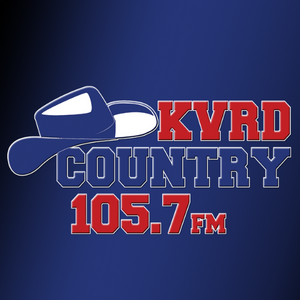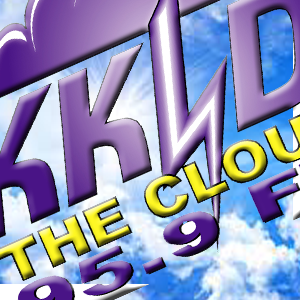Additional local links can be found at the bottom of this article
Northern Arizona food bank information
Health resources
Look to the following Centers for Disease Control and Prevention (CDC), state and county resources for more information on COVID-19:
· Coconino County Health and Human Services COVID-19 hotline: 928-679-7300 and website.
· Coconino County COVID-19 drive up swab testing information.
· NA Healthcare COVID-19 Statistics and Resources – FMC & VVMC
· Navajo Nation COVID-19 information
· Yavapai County Health Services hotline: 1-844-542-8201 and website.
· Tips on coronavirus prevention.
· Arizona Department of Health and Human Services information.
Coronavirus- Plan and Resources
Keeping businesses informed is a top priority for Yavapai Broadcasting. With all of the recent developments regarding COVID-19, the disease caused by the coronavirus, and with the help of the Cottonwood Chamber of Commerce we developed a resource page to provide continuous updates and resources to keep your organizations informed and prepared. We are monitoring the situation through the Center for Disease Control (CDC) and the World Health Organization (WHO) and will continue to communicate with our members and the community as it evolves. This page will be updated with new and relevant resources as they become available.
General Information about COVID-19
It is important to rely on authoritative sources for information regarding COVID-19. The Center for Disease Control (CDC) and World Health Organization (WHO) are great resources for up to date information on COVID-19. The CDC offers information on how Coronavirus Disease (COVID-19) spreads, symptoms, prevention and treatment, what to do if you are sick, and frequently asked questions, including printable fliers.
About Coronavirus Disease 2019 (COVID-19)
Global Impact of COVID-19
John Hopkins University has created an interactive map that provides a visual representation of confirmed cases of COVID- 19 and related data across the globe.
Coronavirus COVID- 19 Global Cases Dashboard
Preparedness
Arizona businesses should be prepared to implement measures that keep their employees safe and calm as more about the coronavirus becomes known. Simple, common sense practices will demonstrate your commitment to employee wellness.
The Arizona Department of Health and Services is working closely with local and federal partners to identify cases of COVID-19 and prepare the community for possible spread of the virus. Guidance is being created and distributed to partners including healthcare, first responders, schools and childcare centers, universities, law enforcement, businesses, and other community partners. Additional information regarding COVID-19 in Arizona can be found at Arizona Department of Health Services.
Businesses of all sizes should have a plan in place in the event of a pandemic. It is important to identify leaders within your organization and coordinate on proper planning and communication that is appropriate for your company. This sample plan outlines the phases of a pandemic and provides actionable steps your team can take to be prepared.
Prevention and Treatment
Preventative Measures and Treatment
Prevention: There is currently no vaccine to prevent coronavirus disease 2019 (COVID-19). The best way to prevent illness is to avoid being exposed to this virus.
However, as a reminder, CDC always recommends everyday preventive actions to help prevent the spread of respiratory diseases, including:
- Avoid close contact with people who are sick.
- Avoid touching your eyes, nose, and mouth.
- Stay home when you are sick.
- Cover your cough or sneeze with a tissue, then throw the tissue in the trash.
- Clean and disinfect frequently touched objects and surfaces using a regular household cleaning spray or wipe.
Using a Facemask
- CDC does not recommend that people who are well wear a facemask to protect themselves from respiratory diseases, including COVID-19.
- Facemasks should be used by people who show symptoms of COVID-19 to help prevent the spread of the disease to others. The use of facemasks is also crucial for health workers and people who are taking care of someone in close settings (at home or in a health care facility).
Wash your hands often with soap and water for at least 20 seconds, especially after going to the bathroom; before eating; and after blowing your nose, coughing, or sneezing.
- If soap and water are not readily available, use an alcohol-based hand sanitizer with at least 60% alcohol. Always wash hands with soap and water if hands are visibly dirty.
- For more information specific to healthcare, see Hand Hygiene in Healthcare settings
In the event that you must travel, the CDC provides tips on prevention that you can follow while you are traveling.
There is no treatment for the Coronavirus at the moment, so if you begin having a fever or experiencing symptoms of a respiratory infection such as cough or trouble breathing and you have been in contact with someone with the Coronavirus or in an area with the Coronavirus, notify your doctor. The CDC provides information at this link on measures you can take if you have the Coronavirus or are experiencing Coronavirus-like symptoms.
Additional Resources
Tips for Individuals and Organizations
Article providing recommendations for things individuals and organizations can do in terms of prevention.
U.S. Chamber of Commerce Foundation Corporate Aid Tracker
The business community is mobilizing its expertise, capabilities, and community resources to assist with the relief and containment efforts. Learn more.
World Health Organization: Coronavirus disease (COVID-19) outbreak
Information and guidance from WHO regarding the current outbreak of coronavirus disease, including daily updates.
World Health Organization: Video Explainer
Video from WHO explaining what’s currently known about the virus.
Look to the following CDC, state and county resources for more information on the coronavirus:
- CDC website on coronavirus.
- Tips on coronavirus prevention.
- Arizona Department of Health and Human Services information.
- CDC’s travel notices.
- Coconino County Health and Human Services information.
- Yavapai County Health Services website.
Local First Arizona’s Small Business Relief Fund
In response to the COVID-19 pandemic, Local First Arizona and its community partners are launching a fund to provide mini-grants to Arizona’s smallest, locally owned, independent enterprises. These micro-entrepreneurs — businesses with 0-3 employees and less than $250,000 in annual revenue (approximately $35k-$45k in net profits) — need immediate assistance to sustain the impact from decreased business and cash flow caused by the shut down of our economy. We are calling upon the community, from corporate partners to individuals just like you, to help our entrepreneurs by donating to the fund. Each donation is tax deductible and supports a family owned business by providing a mini-grant that offers much needed financial support through the duration of this crisis. https://www.localfirstaz.com/small-business-relief-fund
Northern Arizona Healthcare COVID-19 Hotline goes live at 6 p.m. on Friday, March 13
Please call the new Northern Arizona Healthcare Hotline at 928-773-2301 with your questions about SARS-CoV-2 Coronavirus (COVID-19) exposure, transmission and/or testing. Here, you can receive up-to-the-minute knowledge and information. The Hotline will be up and running by 6 p.m. on Friday, March 13. Thank you.
The Flagstaff Downtown Business Alliance is updating a comprehensive list of downtown businesses and how they are responding to the COVID-19 virus, and how the community can continue to support our local businesses.
The City of Cottonwood will keep the following web page up to date with the latest information: https://cottonwoodaz.gov/coronavirus.
The Northern Arizona Council of Governments (NACOG) Economic/Workforce Development Division (EWD) is working side-by-side with you as we work toward resiliency following the economic and workforce difficulties posed by COVID-19. Effects of “precaution” are definitely being felt right here. We are committed to do everything we can to help ease the burden of our businesses and workforce as we work through this together.
In Yavapai County, NACOG has access to federal and state Workforce Innovation and Opportunity Act (WIOA) Dislocated Worker and Rapid Response funding to assist in a variety of ways:
- NACOG and ARIZONA@WORK is a resource for your unpaid employees to reach out for assistance with Unemployment Insurance benefits and Temporary Employment Services. Register at Arizona Job Connection (AJC), www.azjobconnection.gov and Unemployment Insurance, www.azui.gov . NOTE – We recommend including a note Reason for Separation – “COVID-19”.
- NACOG also assists employers with Layoff Aversion strategies and resilience planning.
- Dislocated Workers who have been separated from income have access to WOIA services due to COVID-19 layoffs, and we are working on temporary assignments that our clients can be placed in.
Employers: If you are facing closure, please let your employees know that there are services at NACOG – please call the West County One Stop at (928)778-1422 or (928)308-4832, East County One Stop at (928)649-6867 or (928)649-6868, or visit our websites: www.nacog.org and www.yavapaiatwork.com.
As a community, please respond to inquiries with the information provided here related to work conditions rather than forwarding calls. Attached you will find a Community Resources Guide, screen shots from the Arizona Job Connection website for guidance on signing up, and information regarding how to file for Unemployment Insurance.
Please visit our websites www.nacog.org and www.yavapaiatwork.com for updates and more information.










